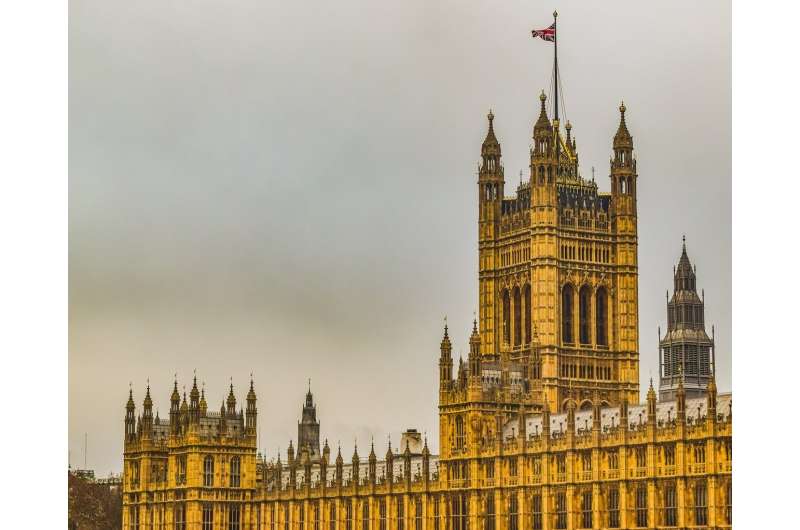This article has been reviewed according to Science X's editorial process and policies. Editors have highlighted the following attributes while ensuring the content's credibility:
fact-checked
trusted source
proofread
New research on legal aid cuts shows wasted money and 'embarrassing' data gaps in UK

There needs to be "significant improvements" to the way data is collected across UK Government to prove if major changes to legal aid have delivered value for money to the taxpayer, a new report says.
The Legal Aid, Sentencing and Punishment of Offenders Act of 2012 was intended to make significant savings to the cost of the civil legal aid budget. The previous government was unable to provide evidence for this.
The report argues there needs to be more systematic collection and analysis of quantitative data across government and local government. This would then show if legal aid cuts have led to savings to the public purse, of if the costs have been passed on to local authorities and other organizations via legal or housing costs associated with the slowing down of court cases, or by people waiting for judgements not being able to work and pay tax.
The report, authored by Emma Marshall, Samuel Engle and Siân Pearce from the University of Exeter in partnership with Public Law Project and Migrants Organise, spells out what data Government needs to collect to work out the actual costs of the 2012 LASPO Act legal aid cuts and if, as current evidence suggests, the cuts were a false economy all along.
It says without information about the full costs of LASPO, it is impossible to know whether better value for money has in fact been delivered. Better data would enable a better understanding of the impact of changes to immigration legal aid under LASPO, and would also improve understanding of the wider impact of changes to the scope of civil legal aid.
The report says Government has wasted nearly £400,000 a year assessing immigration legal aid applications that fall under Exceptional Case Funding, even though almost 90% are approved.
Dr. Marshall said, "Improving the sustainability of legal aid must now be a priority for the Government. We currently have a legal aid system that is neither fair nor fit for purpose and it is putting a considerable strain on many areas of governance.
"Reinstating immigration legal aid would help the whole immigration system to function more fairly and efficiently, as well as reducing costs across other parts of government."
Public Law Project's Dr. Jo Hynes, said, "Immigration legal aid is now available to only a fraction of the people who need it. The appalling injustice and harm this causes is well known to anyone working in immigration.
"But putting the price of injustice to one side: are cuts costing more money than they saved, and could we in fact have a fairer and more efficient system by spending money in different ways?
"This report clearly spells out which data the incoming Government needs to keep track of in order to find that out.
"There are clearly false economies in play. The tax-payer has just sunk £320 million on the Rwanda plan. That is 21 years' worth of the total reduction in spending for immigration legal aid caused by LASPO.
"We are at a point where the need for evidence to demonstrate the full costs of LASPO is embarrassingly urgent. By collecting the data points we identify, the Government will be able to start building immigration legal aid policy on a sound evidence base."
"Immigration Legal Aid and value for money" points to existing evidence which shows that:
- Legal aid cuts have led to increased spending in other parts of government and public services, placing pressure on courts, health services, local authorities, prisons and social services.
- Reducing immigration legal aid has impacted local authorities who have legal duties to support those who cannot access other public funds.
- Where immigration legal aid is inaccessible, costs are shifted to other government departments, including the Department for Levelling Up, Housing and Communities and the Department of Health and Social Care.
- New calculations contained in the report show that the Legal Aid Agency spends nearly £500,000 a year on assessing applications for immigration legal aid through the Exceptional Case Funding (ECF) scheme, even though 87% of applications are approved.
More information: Immigration legal aid and value for money: Identifying the missing data (2024). publiclawproject.org.uk/conten … riefing-paper-AW.pdf
Provided by University of Exeter




















